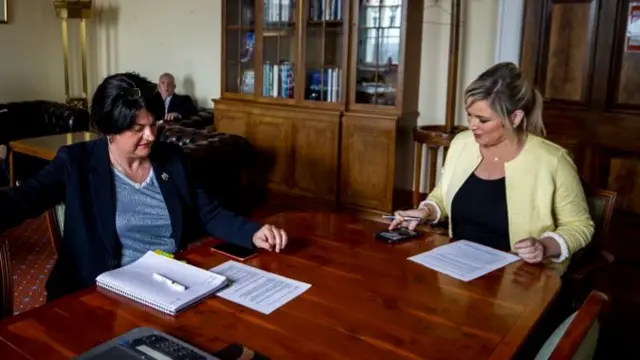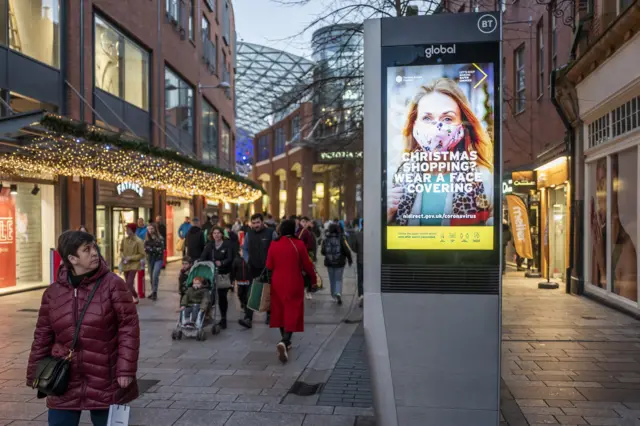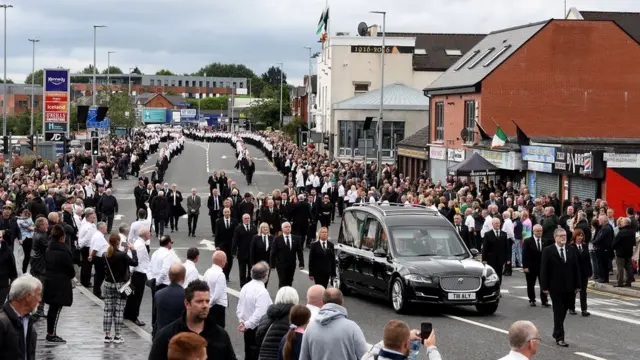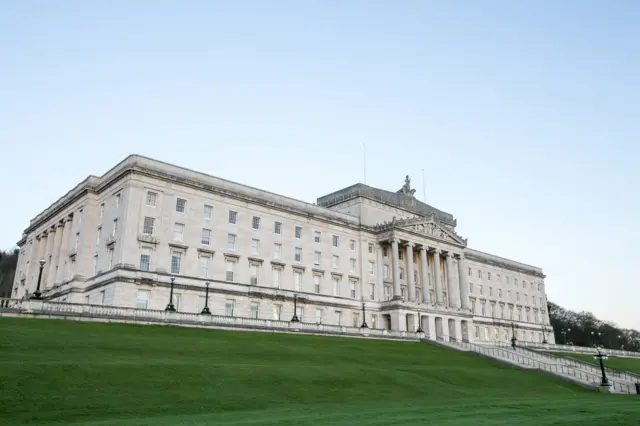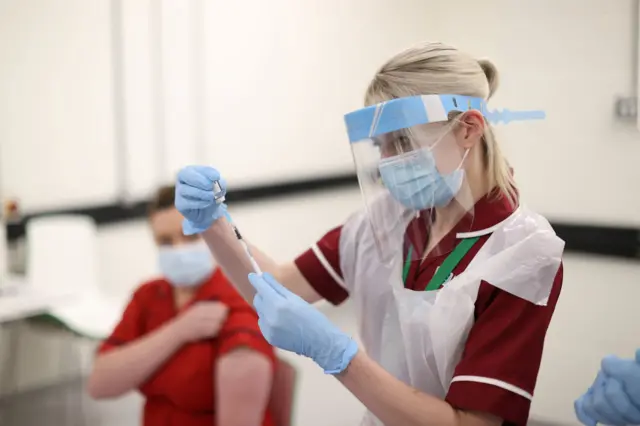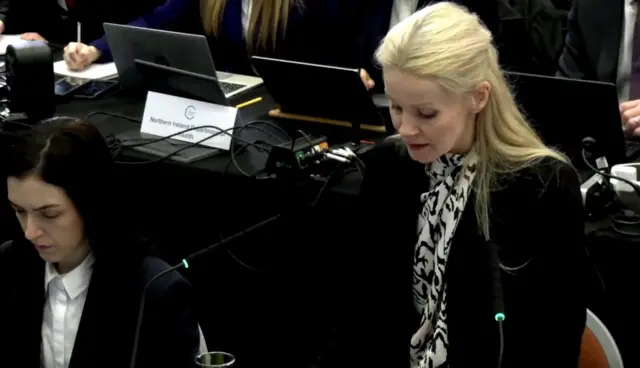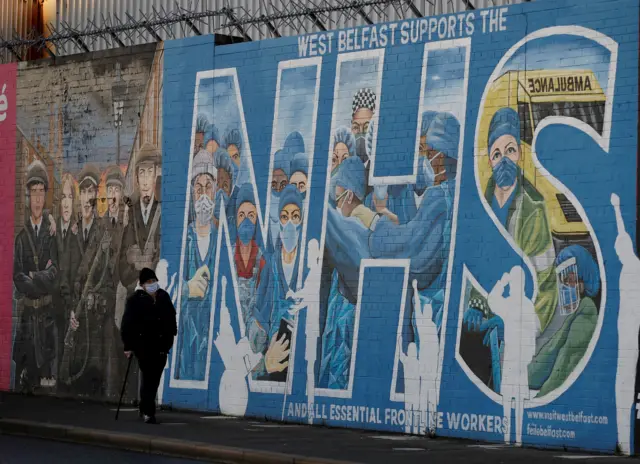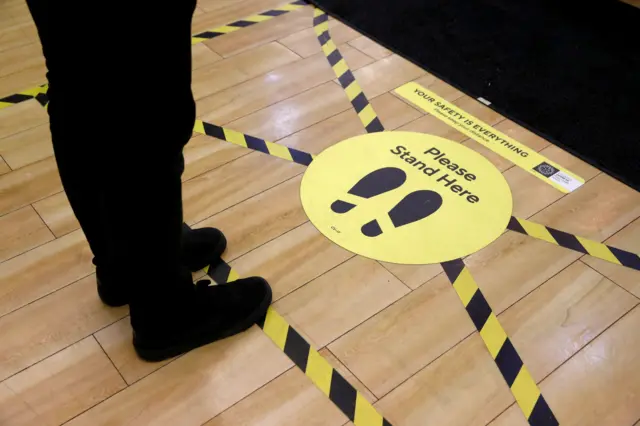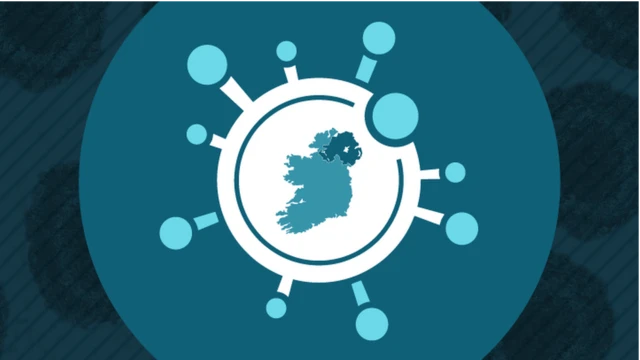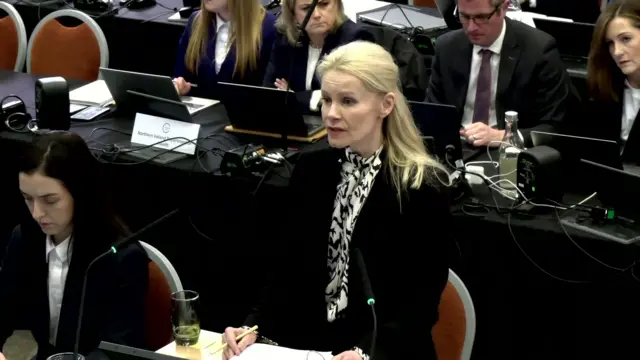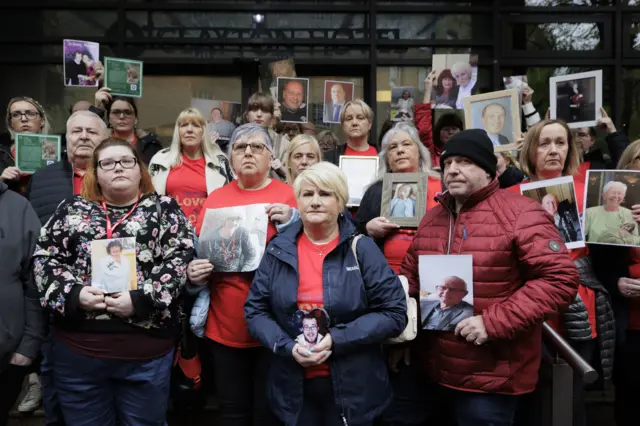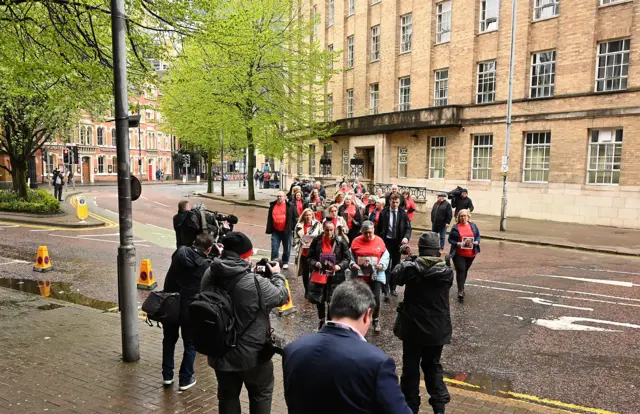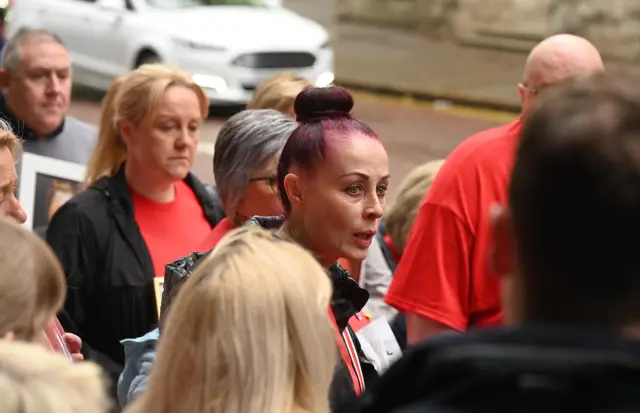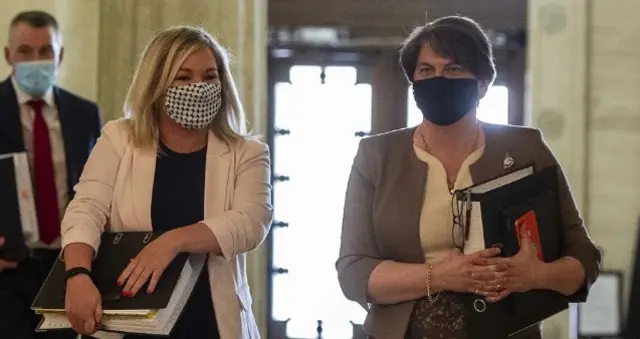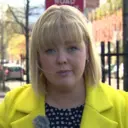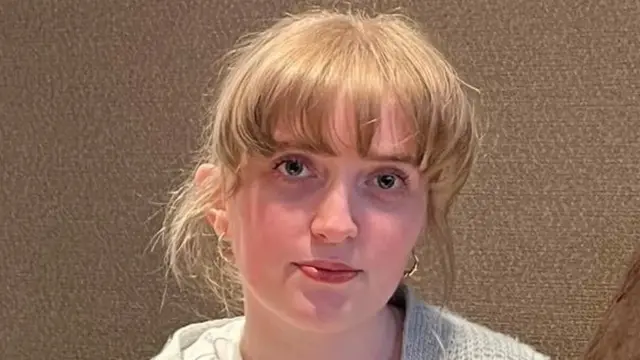Circuit breaker discussions were 'most difficult meetings'published at 12:55 BST 30 April 2024
By 13 October, Ms Dobbin says, after lockdown measures had been lifted in the summer, it was recommended that there should be a six-week period of significant restrictions.
A four-week “circuit breaker” was introduced and a “critical point came during discussions over whether this should be extended for a further two weeks".
She says of executive meetings on 9,10,11 and 12 of November 2020: "I think it’s really here that we see perhaps the most difficult point in executive committee decision-making in response to the pandemic."
She said Economy Minister Diane Dodds said she was distraught with the tone of the meetings and comments recorded from them include that "this is about theatrics" and that while "only Covid deaths matter to the SDLP all deaths matter to me".
